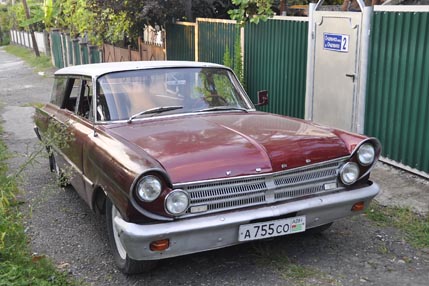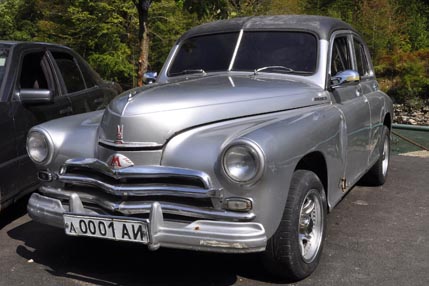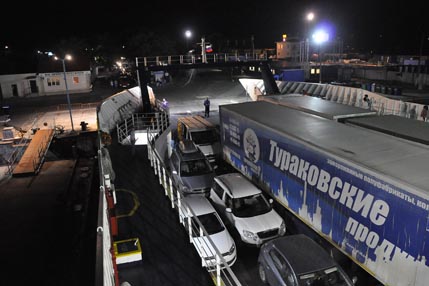
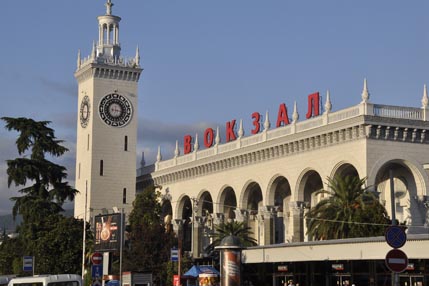
For sixty years Crimea was linked to Russia by an occasional ferry service across the Kerch Strait. How things have changed! In 2014 the immigration and customs posts were swept away, more ferries arrived, and now they’re building a bridge. Even at midnight the activity was intense. By comparison my destination Sochi looked almost serene.


In 1937, on a forested hilltop outside the city, Stalin built himself an extraordinary summer retreat. It was from here that he organised the murder or expulsion of 23 million Soviet citizens.
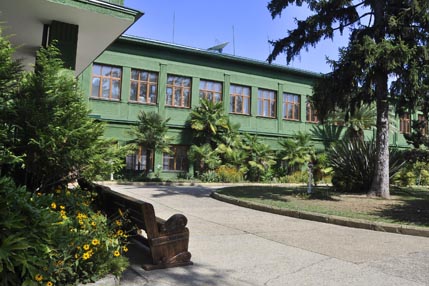
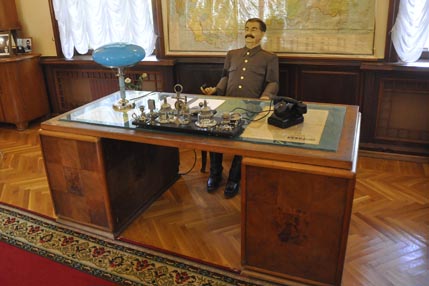
In between these macabre duties he had a soft spot for Mozart, and relaxed in a pool scaled down to his miniscule size (he was shorter than Napoleon).
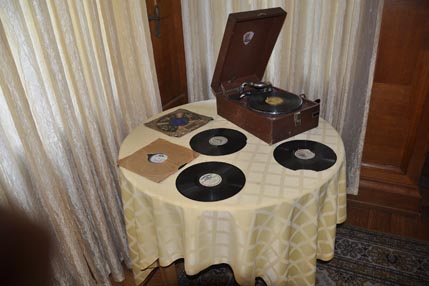
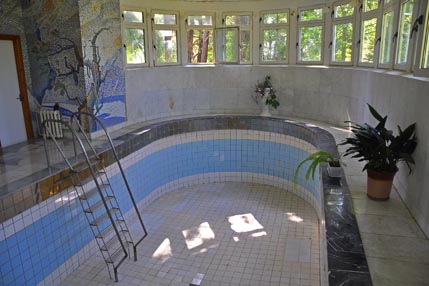
The 2014 Winter Olympics took place mostly up in the mountains at Krasnaya Polyana, in a once unspoilt valley now horribly disfigured with steel and concrete. The luxury hotels and ski lifts are best seen from a distance. Better still, just close your eyes.
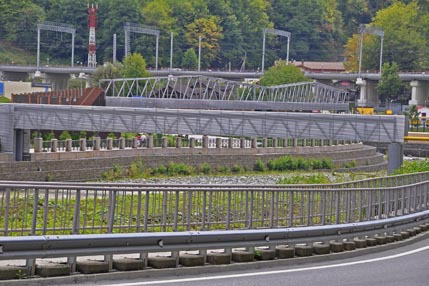
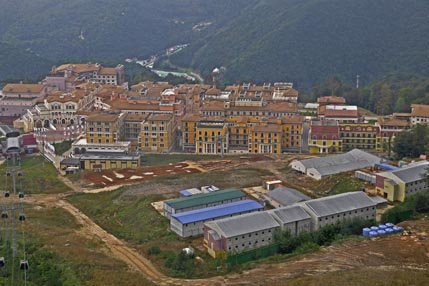
My next place was Abkhazia, another so-called ‘country that doesn’t exist’. We think of it as part of Georgia, but in 1992 the Soviet break-up triggered a war between its Georgian and Abkhazian citizens, the brutality of which beggars belief. Neighbours slaughtered neighbours, and 250,000 Georgians fled. Twenty-three years later, tens of thousands of Abkhazia’s houses remain derelict.
On the outskirts of the capital Sukhum, I stumbled across a block of flats that had been attacked by heavy artillery. Unbelievably, people were still living there. (Click any photo to enlarge.)
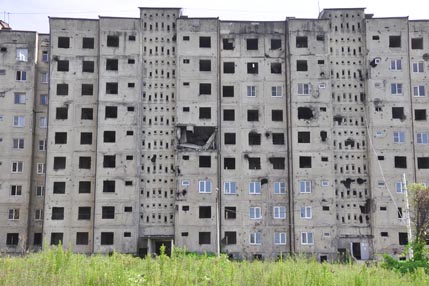
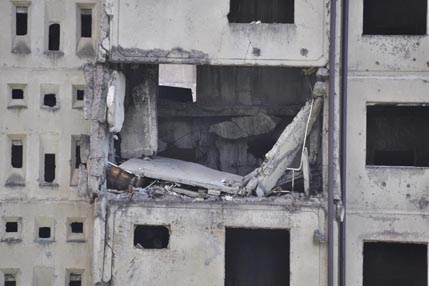
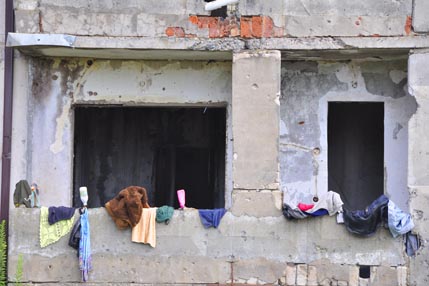
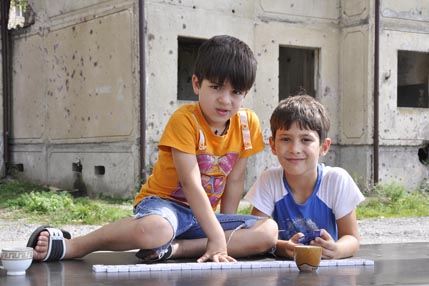
These boys’ mothers invited me in for coffee. Their flat had been utterly destroyed, but from the wreckage they’d slowly managed to make it habitable and rebuild their lives.
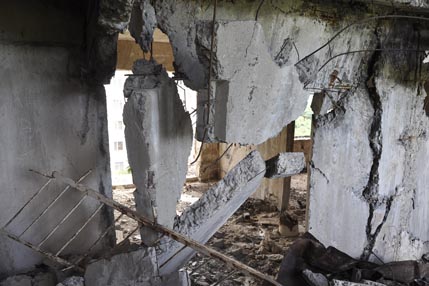
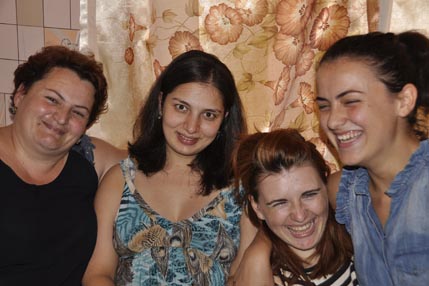
Even in extreme situations, life goes on and people shop. No one goes hungry; and for home furnishings Sweden’s finest is a big attraction.
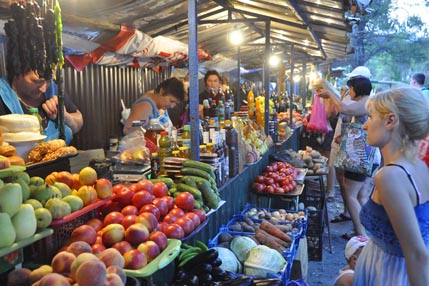
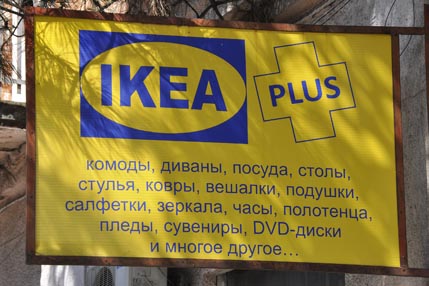
Abkhazia lies at the western tip of the Greater Caucasus. Away from the cities it’s a country of soaring mountains and deep, clear lakes.
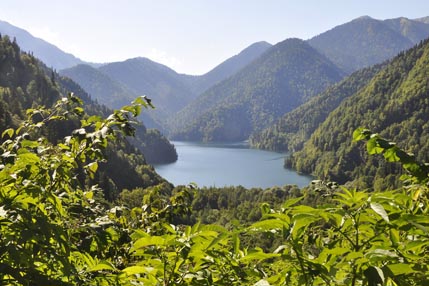
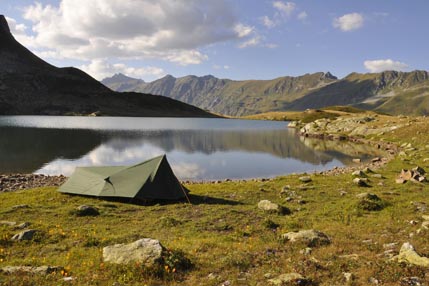
For me this was Paradise. Just cool fresh air and friendly cattle-herders.
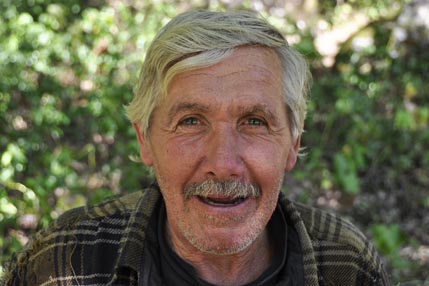
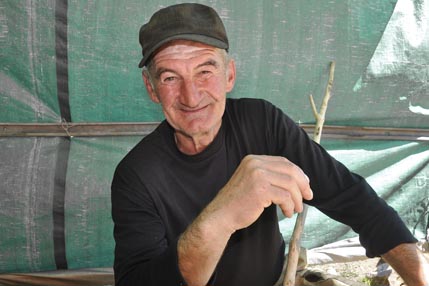
In a high valley of beech and fir I came to the bluest lake I’ve ever seen. Even the herders don’t visit ‘Little Ritsa’. For a couple of hours I shared it with just a woodpecker and my friend on the right below.
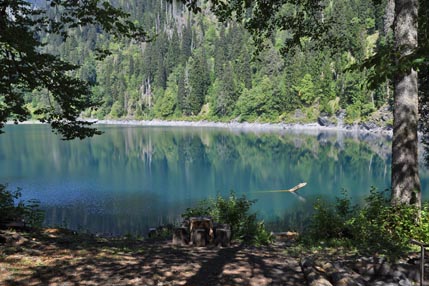
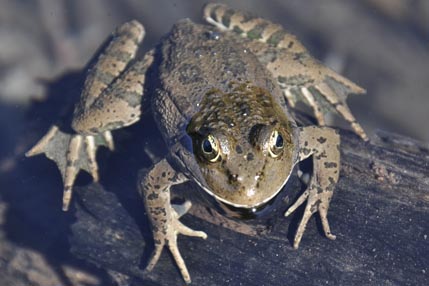
A week later I followed a path beneath a cliff to Amtkyal, one of the country’s most isolated villages.
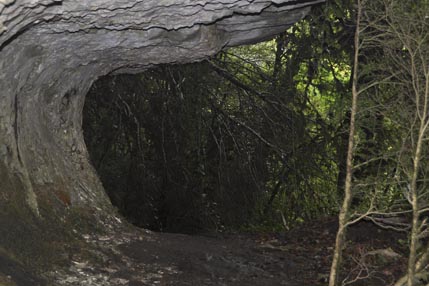
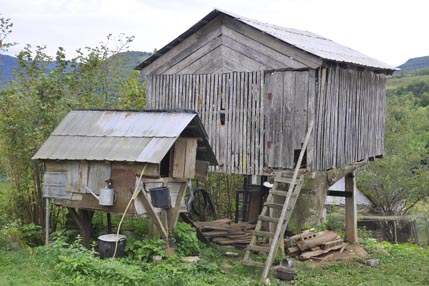
Of all Abkhazia’s warm and welcoming people, the ones I met here were the most generous. They plied me with nuts, grapes, cheese and honey, all home-produced.
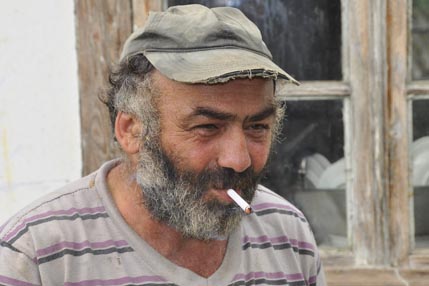
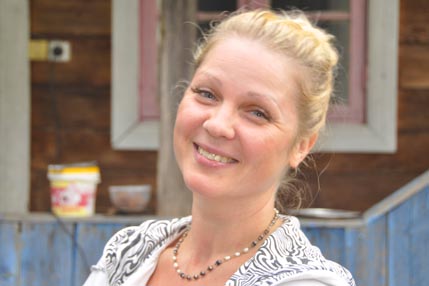
Oh, and did I mention that Abkhazians drive some amazing cars?
